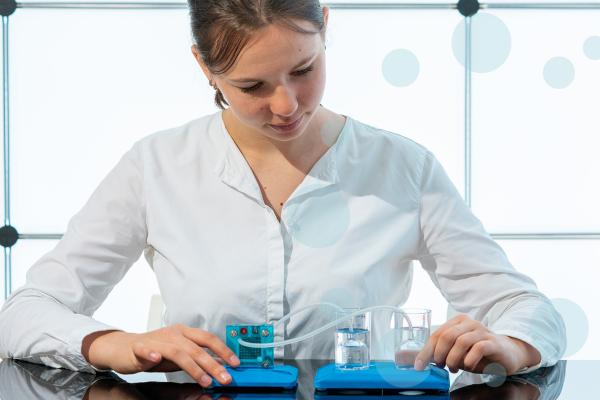Hydrogen technologies are a key instrument to achieve the decarbonisation goals of the Green Deal and are at the core of the European Hydrogen Strategy and RePower EU Plan. Europe aims at producing and importing up to 20 million tons of renewable hydrogen (10 million tons of imports and 10 million tons produced in Europe) by 2030. This objective presupposes a remarkable growth in the deployment of hydrogen technologies across sectors and the development of a dedicated European infrastructure for hydrogen production, storage and transport across European territory.
Hydrogen has an important role to play in decarbonising hard-to-abate sectors such as industry and heavy-duty transport, including maritime and aviation. At the same time, imports of renewable hydrogen will need to be rationally planned and the development of a dedicated infrastructure carefully orchestrated. The production of hydrogen is at the start of the synthesis of any decarbonised gas and synthetic fuels.
Technology Monitoring and Assessment
The JRC performs comprehensive technology monitoring and assessment on hydrogen and hydrogen-related technology options. Its expertise supports the decision-making process of policy makers, the Clean Hydrogen Joint Undertaking and European and international agencies. In addition, hydrogen data based on technology monitoring are fed into JRC techno-economic modelling activities.
Since hydrogen is a fundamental building block for all renewable fuels and gases of non-biological origin, the JRC is enhancing the Commission know-how by monitoring innovation and EU industry competitiveness through the assessment of hydrogen-related technologies across the full hydrogen value chain (production, transport, storage and final use).
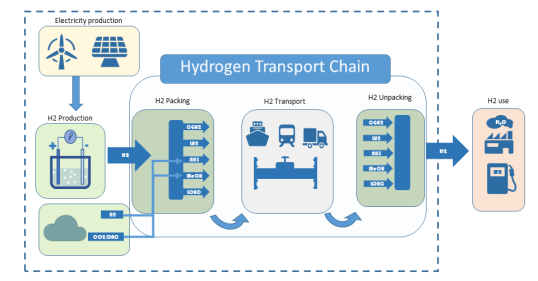
The JRC also evaluates the sustainability of hydrogen and its applications in terms of emissions and impacts on resources, such as critical raw materials. These assessments ensure that European ambitions are reached sustainably and effectively.
Water electrolysis
Water electrolysis is a key technology for the production of renewable hydrogen, also allowing for better integration of renewable energy sources across the EU energy systems and sectors. As one of the technologies identified in the Net_Zero Industry Act, water electrolysis is drawing more interest thanks to its potential to obtain hydrogen with a very low associated carbon footprint, as well as for its ability to provide services, such as load response management, to changing electricity grids. Demonstration projects where electrolysers are connected to electricity and gas grids are underway, but significant gaps remain in the knowledge of what electrolysers can ultimately achieve, at what cost, and where they may be most effective in meeting policy and market needs.
Through its research, the JRC supports the development of standardised testing protocols for electrolysers, including the assessment of their performance, lifetime and durability. This is key for gaining a better understanding of electrolyser potential and meeting European ambitions for electrolyser deployment. To ensure that these protocols are fit for purpose, the JRC collaborates with European partners and utilises in-house Fuel Cells and Electrolyser Testing Facilities.
This allows an evaluation of different types of electrolysers under different operating conditions, thereby providing valuable insights into their performance and behaviour.
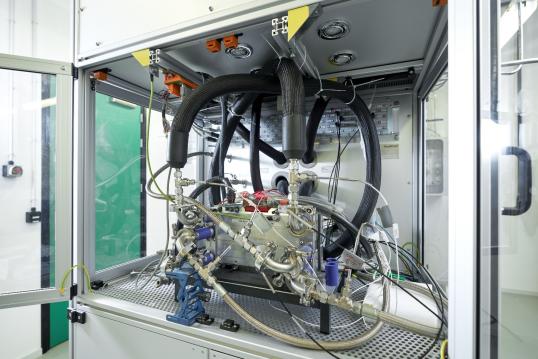
Under a framework agreement between the JRC and Clean Hydrogen Joint Undertaking, the JRC leads an effort to establish EU harmonised terminology for low-temperature water electrolysis and for high-temperature electrolysis. The JRC is also conducting work on accelerated stress testing protocols for electrolyser stack systems.
Testing of hydrogen pipelines and high-pressure hydrogen storage systems
The RePowerEU Plan recognises that the development of hydrogen infrastructure in the EU is a key action to connect supply and demand and accelerate hydrogen uptake in industry and transport. The upscaling of the hydrogen transmission infrastructure will rely mainly on repurposed natural gas pipelines, complemented by newly built ones.
Standardisation of the methods to verify and validate the overall safety of the gaseous hydrogen infrastructure is crucial for overall market acceptance and integration of hydrogen technologies into the overall global energy system. The JRC’s experimental assessment of the safety and performance of systems and components under high hydrogen pressures is carried out at its High Pressure Gas Testing Facility
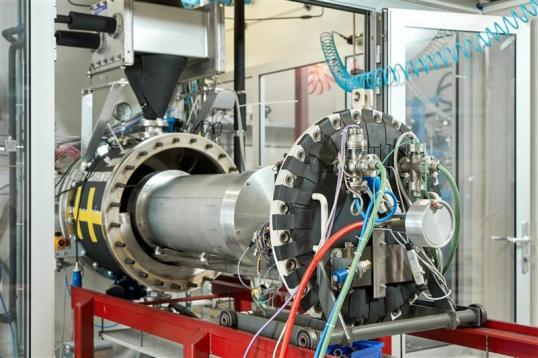
Fuel Cells
The JRC has demonstrated for many years its contribution to standardisation and its support harmonisation of testing protocols for fuel cell stacks in Europe. The design of the JRC Zero gradient cell, reference hardware for harmonised testing of PEM single-cell fuel cells is publicly available for those characterising PEM fuel cells.
Read more
The Fuel Cell Testing Facility of the JRC in Petten, Netherlands.
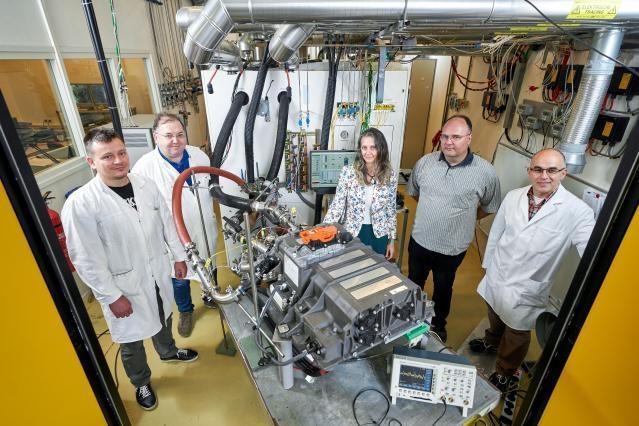
Proton exchange membrane (PEM) stack low temperature test bench, Petten laboratory, Fuel cell team. 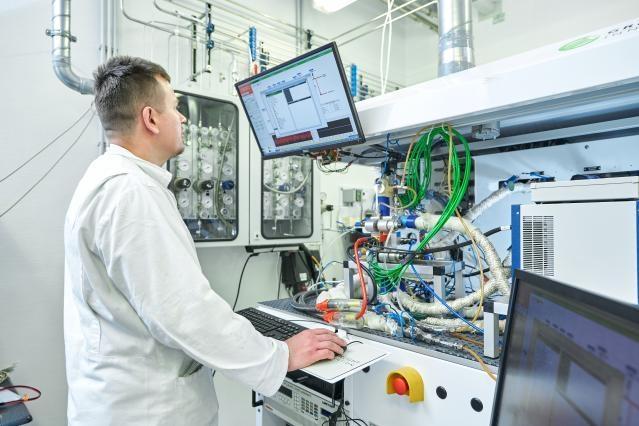
Control testing of proton exchange membrane fuel cell (PEMFC). 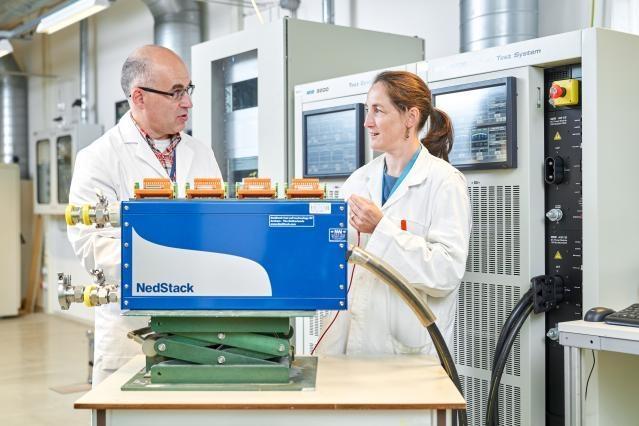
Control testing of proton exchange membrane fuel cell (PEMFC). 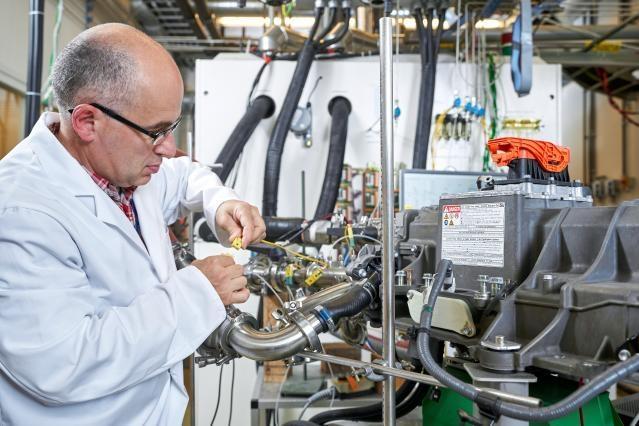
Assembly of Proton exchange membrane fuel cell (PEMFC) stack for testing for transport applications. 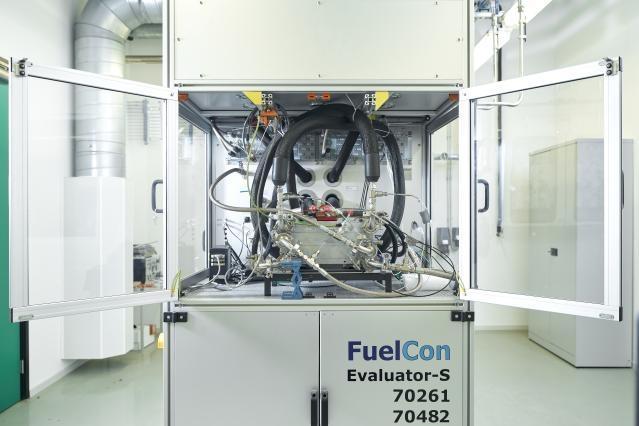
Proton exchange membrane fuel cell (PEMFC) low temperature test station with a prototype stack assembled. 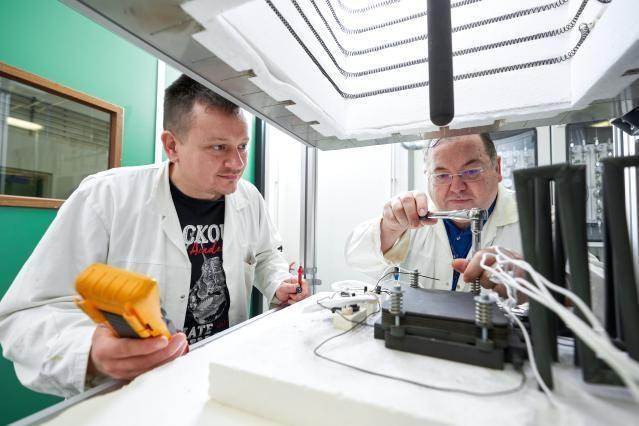
Assembly of a solid oxide fuel cell stack.

